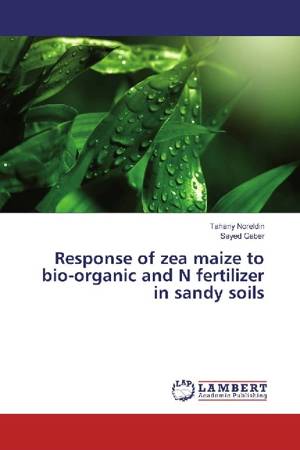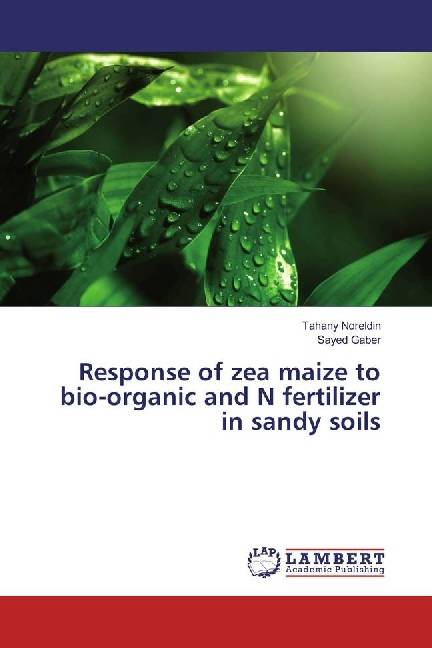
Bedankt voor het vertrouwen het afgelopen jaar! Om jou te bedanken bieden we GRATIS verzending (in België) aan op alles gedurende de hele maand januari.
- Afhalen na 1 uur in een winkel met voorraad
- Gratis thuislevering in België vanaf € 30
- Ruim aanbod met 7 miljoen producten
Bedankt voor het vertrouwen het afgelopen jaar! Om jou te bedanken bieden we GRATIS verzending (in België) aan op alles gedurende de hele maand januari.
- Afhalen na 1 uur in een winkel met voorraad
- Gratis thuislevering in België vanaf € 30
- Ruim aanbod met 7 miljoen producten
Zoeken
Response of zea maize to bio-organic and N fertilizer in sandy soils
Tahany Noreldin, Sayed Gaber
Paperback | Engels
€ 49,45
+ 98 punten
Omschrijving
Two field experiments were conducted in sandy soil during 2002/03 growing seasons to study the response of maize plants to bio-organic, N and P, K fertilization. Two different kinds of compost, maize and wheat compost were used at the rate of 5 ton/fed. The experiment design was split-split plot with 4 replications. Compost treatments (0 and 5 ton/fed) of maize and wheat compost were assigned in the main plots whereas N-fertilizer rates (0, 45, 90 and 135 N/fed) and PK rates (0, 31 kg P O + 48 kg K O/fed) were randomly distributed in sub and sub-sub plots, respectively. Vegetative and yield characters were measured during plant growth and at harvest. Results showed that applying compost at 5 ton/fed improved plant growth and ear height and induced earlier tasseling and silking. It also, led to a significant increase in yield/fed. Increasing N rate up to 135 kg N/fed markedly increased both plant and ear height, ear length, ear diameter, number of rows/ear, grain yield/fed. It also induced early flowering two growing seasons. The same trend applying phosphorus and potassium level.
Specificaties
Betrokkenen
- Auteur(s):
- Uitgeverij:
Inhoud
- Aantal bladzijden:
- 112
- Taal:
- Engels
Eigenschappen
- Productcode (EAN):
- 9783659915376
- Uitvoering:
- Paperback
- Afmetingen:
- 150 mm x 220 mm

Alleen bij Standaard Boekhandel
+ 98 punten op je klantenkaart van Standaard Boekhandel
Beoordelingen
We publiceren alleen reviews die voldoen aan de voorwaarden voor reviews. Bekijk onze voorwaarden voor reviews.









